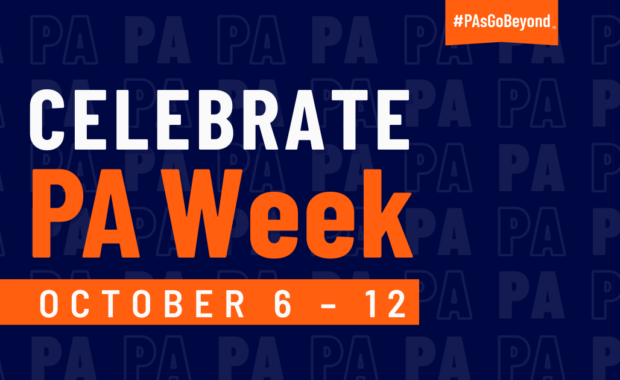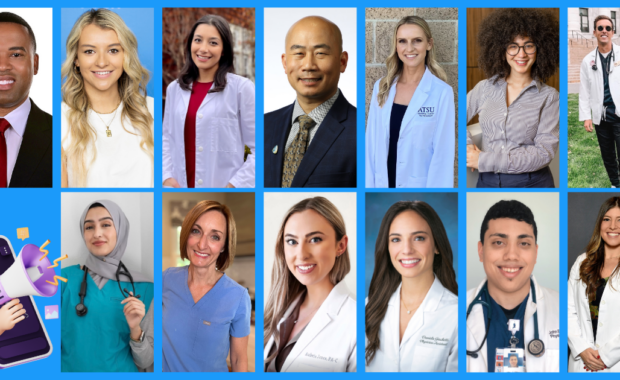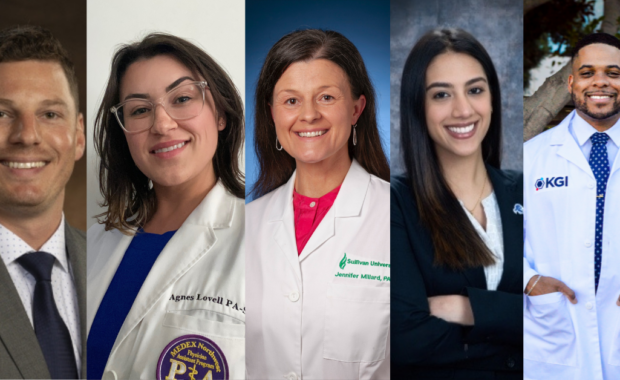Nutrition Resources Help Serve Diverse Communities
SPONSORED
PAF Nutrition Outreach Fellows Reach Out to Educate Their Communities
March 2, 2021
Select PAs participating in the PA Foundation’s Nutrition Outreach Fellowship have benefited from the program’s training and materials to educate patients with limited knowledge of nutrition and its impact on chronic disease. Five of the Fellows shared lessons learned with AAPA.
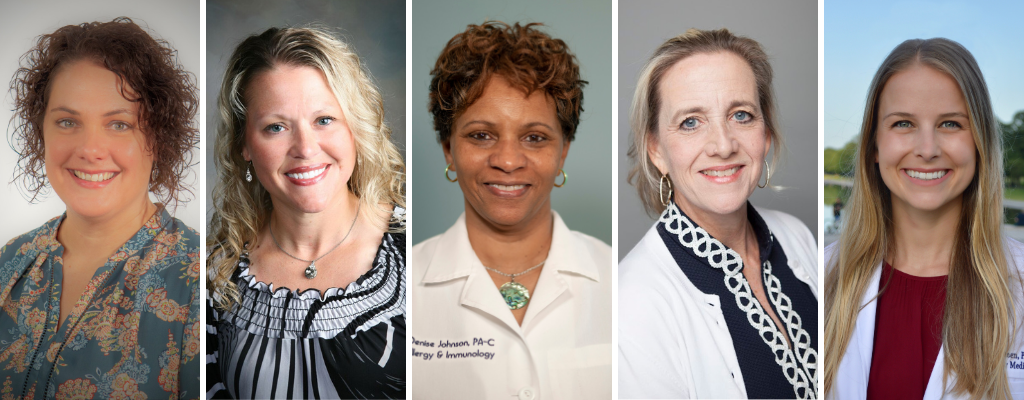
“I am now able to communicate more confidently and effectively with my patients about how diet can impact their health, both in a positive and negative way,” says Nicole Drake, PA-C, with AdventHealth Medical Group Family Medicine at Biltmore Park in Asheville, North Carolina.
Last year, the PA Foundation introduced a Nutrition Outreach Fellowship and selected 40 PAs from applicants across the country to be a part of the inaugural cohort. Through the fellowship, PAs receive special training and resources on nutrition to both enhance their clinical practice and to give back to their healthcare peers and the community at large.
As part of the program, supported by Abbott Nutrition, each Fellow will deliver nutrition education to consumers and healthcare peers over the course of the fellowship year. Content focuses on the role of nutrition in overall health with a special focus on management of type 2 diabetes, healthy aging, and Enhanced Recovery After Surgery (ERAS).
Alexa Tovsen, PA-C, with GW Medical Faculty Associates in Washington, D.C., describes her biggest takeaway from the program: “The information doesn’t need to be overly technical or complicated. People just want to know the basics and to learn about the simple steps that they can take to make improvements in their life. Sometimes we as medical providers make things too complicated.”
From training to simple, helpful resources
Last fall, the Nutrition Outreach Fellows participated in virtual training sessions and reviewed handouts to provide to patients.
“The training we received was from our peer-colleagues who are registered dietitians and PAs. It was excellent – very high-quality instruction and evidence-based information. We had to role-play and complete the same exercises that we were going to use with our patients, so that provided me with an opportunity to practice with the materials and tools ahead of time,” says Erin Lepp, MMSc, PA-C, clinical associate professor at Mercer University PA Program in Atlanta, Georgia.
Resources include three two-minute videos on nutrition to improve recovery after surgery, how to use a 24-hour dietary recall, and managing type 2 diabetes; one-page handouts on the same topics; and PowerPoint presentations to adapt and share with communities. PAs have found the videos and handouts especially helpful in their outreach efforts.
“I really love all of the presentations and handouts. I give out the one-page flyers that include web links to the informative videos to a lot of my patients,” says Karey Davis, PA-C, with Henry Community Health in West College Corner, Indiana. “I share handouts with patients if they are interested and I have several hanging in our offices as well as in the waiting rooms.”
Lepp adds, “All the materials that we have used during the fellowship have been high quality and nicely produced. I really like the fact that the visuals are culturally diverse, and the animation style is current and appealing. The materials are something that all ages of participants can relate to…They are not overly academic but are packed with a lot of great content and teaching points.”
ERAS biggest surprise in nutrition education
The participating Fellows each noted that the information they found most surprising and new during training was on ERAS. Davis says, “The amount of increased protein intake before and after surgery and the length of time that increase should occur surprised me the most.”
Tovsen concurs: “I was surprised to learn about the extent to which diet, and specifically protein consumption, improves outcomes and recovery after surgery. This is something that I’m going to urge my patients to focus on when they are scheduled for surgery. It’s nice to be able to empower patients with this information. It gives them more personal buy-in when they feel like they have some power over the outcome of their surgery.”
The ERAS studies, Lepp says, “called for a change to how we have practiced medicine – especially as it relates to preparing patients for surgery. It is a great example of the importance of PAs staying up to date on the medical literature and applying the principles of evidence-based practice to their clinical work.”
Beneficial tools for all PAs
In addition to the ERAS information, the Fellows suggest that the other nutrition outreach resources can benefit all PAs. Drake says, “All of the informational tools would be helpful to other PAs to implement in their practice. In particular, the handouts are helpful as they can be used directly in the patient education that PAs do on a daily basis.” Tovsen appreciates the videos as: “nice, short, easy-to-use tools that you can play for patients in the waiting room, exam room, or while they’re waiting for results.” Denise Johnson, PA-C, with Asthma, Allergy & Sinus Center Waldorf, Maryland, adds, “The videos and handouts are great tools that PAs can use. The videos are to-the-point and informative and the handouts can reinforce the information.”
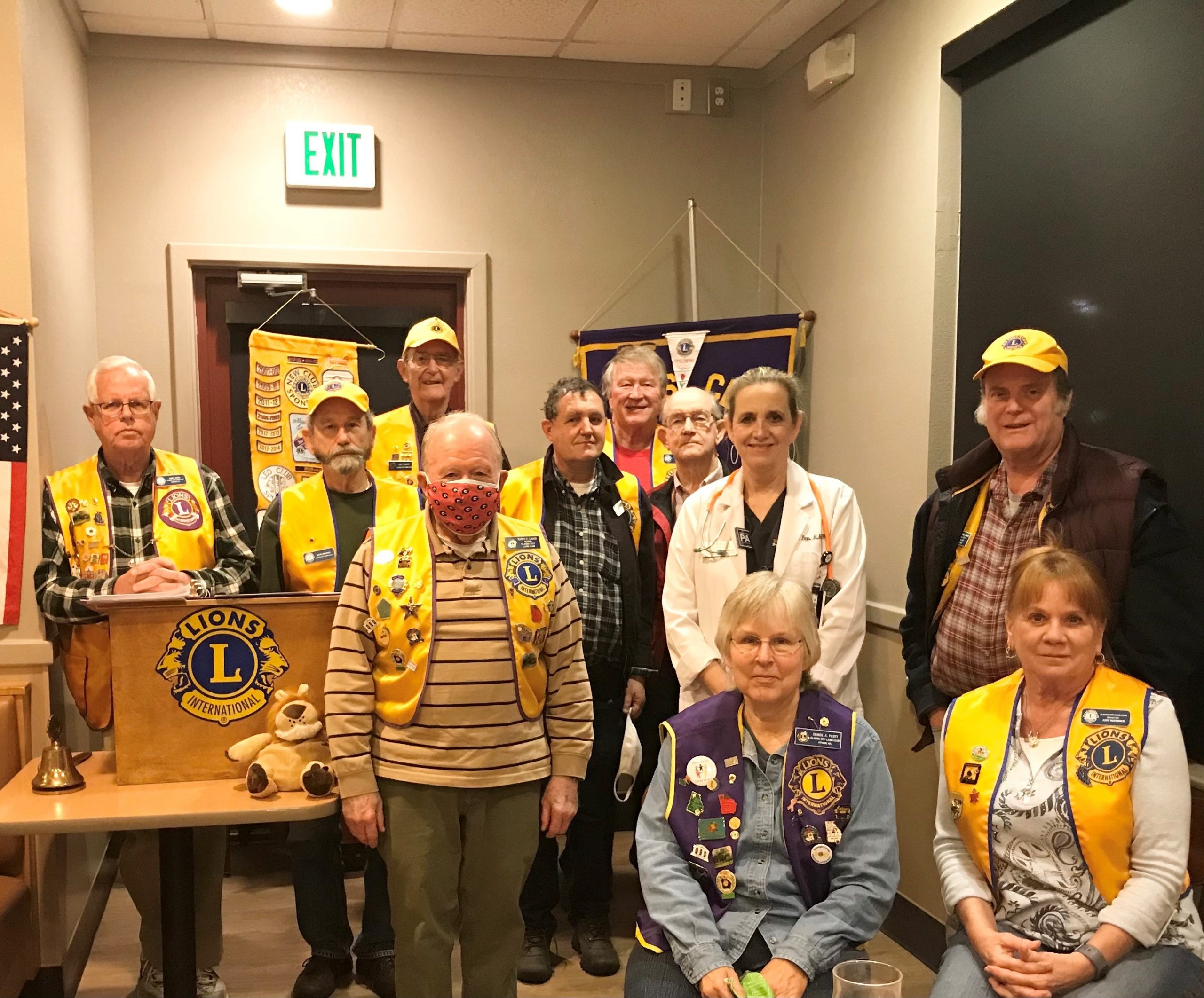
Lepp concludes, “COVID-19 has really created an opportunity for PAs to learn more about screening patients for nutritional needs and food insecurity. Food insecurity is one of the Social Determinants of Health (SDOH) and this issue has really become more apparent during the pandemic. Many of the patients for whom I care are food insecure due to a job loss or being isolated or are afraid to venture out to the grocery store. I am being intentional about discussing nutrition with every patient I encounter. I am concerned about food insecurity in my elderly patients the most since they are in the highest COVID-19 risk group, and I try to connect them to community food donation programs. I have also engaged my students to learn more about food insecurity, and we are organizing a community food drive for the refugee patients we care for at a free clinic.”
Presentation opportunities more and less difficult with COVID-19
One of the fellowship requirements is for each Fellow to reach at least 100 community members and 100 healthcare peers through nutrition presentations. The COVID-19 pandemic has made it more difficult for some PAs to find presentation opportunities, while others appreciate the ease of holding virtual meetings. According to Davis, “COVID-19 has made it very hard to communicate nutrition information, especially to the general public. Providers are overwhelmed with COVID-19 changes (which seem to happen daily), updates, and continually receiving new information.”
On the other hand, Johnson says, “I have not found that COVID-19 restrictions have interfered with my ability to reach out. In fact, it may have made it easier! I can give presentations wherever I am and don’t have to spend time traveling to speak to various groups. Technology has saved us!”
Making a difference with patients
The outreach can help make a difference with patients, according to the Fellows. “My patients suffering from chronic diseases such as obesity, type 2 diabetes, and hypertension can benefit the most because these medical conditions are intimately connected to diet. If these patients learn how to improve their diet, they can decrease the amount of medication they take, or in some cases, completely eliminate the need for medication,” Tovsen reports.
Adds Lepp, “Patients with chronic diseases like diabetes, asthma, chronic obstructive pulmonary disease (COPD), end stage renal disease (ESRD), congestive heart failure (CHF), cancer, or any form of dementia are especially at risk for poor nutrition. For these patients especially, having a PA provider whom they trust and who is willing to take the time to educate them on proper nutrition is vitally important.”
Johnson lives in a community that is considered a food desert. Her community also has some of the highest rates of chronic diseases in Maryland. Johnson says, “I believe it is difficult for people with chronic diseases to follow nutrition advice because food of lesser quality is more readily available, affordable, and easy to prepare. It takes knowledge, forethought and planning to make different and nutritional food choices. It takes a change of mindset, which is always a challenge.”
For more information, samples, coupons and patient resources, go to Abbott resources.
You May Also Like
Other Nutrition Resources for Patients
Unlocking the Value of Nutrition in Your Practice
PA Foundation Announces Nutrition Outreach Fellows
Nutrition Toolkit
Thank you for reading AAPA’s News Central
You have 2 articles left this month. Create a free account to read more stories, or become a member for more access to exclusive benefits! Already have an account? Log in.
